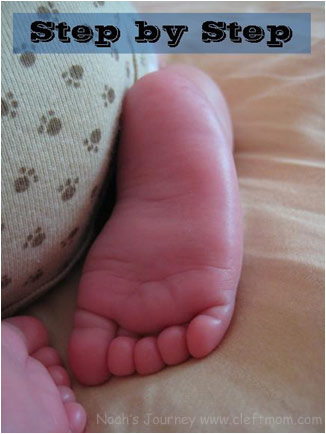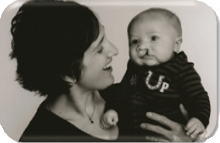 First Things First…
First Things First…
I remember the moment my OB told me the news. I’ve known this doctor for a long time, he’s as honest as they get. The first thing he told me was that they saw a cleft lip in the ultrasound, the second thing he told me was that as a grandfather if he was ever given the “choice” of a birth defect for his grandchild a cleft lip and palate would be what he would choose. Oddly, that was somewhat comforting. Mostly because he explained just how treatable a cleft lip and palate were. Although Noah would require surgery to repair the cleft, the success rate of the surgeries was much higher than years before. I walked away stunned, thinking what did I do to cause this. Surely I’ve made some mistake somewhere. However, that wasn’t the case. I had not made a mistake, I didn’t go wrong anywhere. What I learned was that the cause of a cleft lip and/or palate isn’t completely defined. Sure environmental factors and medications can pose a risk. But there isn’t any way that I have read that can determine what was the cause. The cleft happens so early in a pregnancy, around the 6 week mark, that some women don’t know they are even pregnant yet. I think every mom goes through a “what if” phase before realizing that they cannot blame themselves. This isn’t anyone’s fault, as a mom you didn’t cause this. Please don’t go down the road of beating yourself up. It won’t fix the situation and it will likely make you feel worse. What you can do now is put first things first.
Start to research local hospitals for cleft teams. Often a cleft team is best, they will have all the specialists your child will need in one place. In our case, we chose to take Noah to Children’s Hospital of Michigan.
Make a prenatal appointment with the plastic surgeon if possible. We brought our ultrasound photos and a list of questions. That appointment was a turning point, the surgeon showed us before and after photos. We left feeling very prepared for Noah’s arrival.
Babies who have a cleft palate will often need a special bottle, regular nipples are usually too difficult to use because of the palate not being closed. We were happy with the Medela Special Needs Feeder (also known as the Haberman Feeder). Dr. Brown's also has a speciality feeding system that cleft affected babies can use. Often cleft teams use one type of bottle, but all work just as well. A full list of bottles can be found on the Links Page.
Ask your cleft team if they know of any special insurance coverage offered through your state. In Michigan, Children’s Special Health Care is available to parents of kids with special needs that meet the criteria based on the diagnosed condition. Cleft lip and Palate are covered under that insurance. Many other states offer a similar, optional insurance that can cover what your primary insurance doesn’t. These secondary insurances often help with the cost of these expensive bottles.
